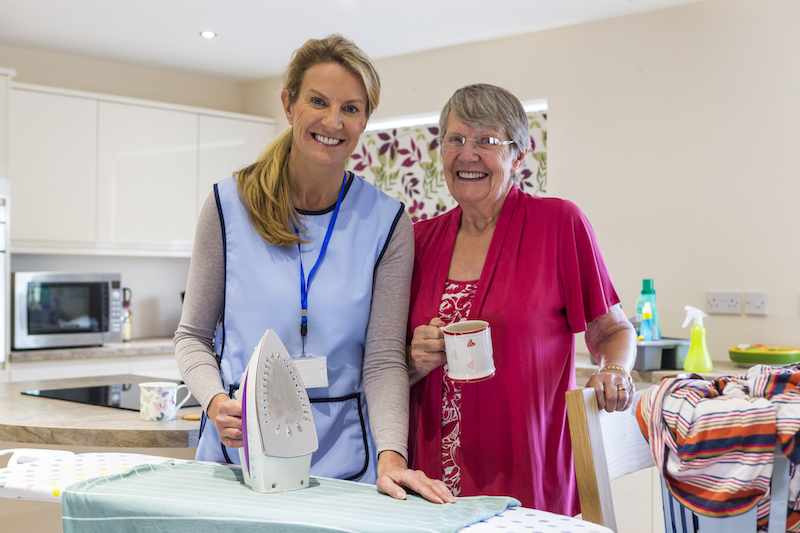Caring and support work is emotionally challenging. Identifying the signs of stress is key if we're to manage and avoid burnout.

When people find out I’m a dementia carer, they often say it must be a difficult job and seem surprised when I tell them how much I enjoy it.
 Caring for people with dementia can be frustrating... and rewarding and fun
Caring for people with dementia can be frustrating... and rewarding and funTackling stress and burnout
Of course, caring for people with dementia can be frustrating and challenging at times, but it can also be very rewarding and a lot of fun.
When I found myself in a state of burnout some months ago, I was very aware that it was not the care work itself that had triggered it, but the environment I was working in.
Key difficulties were a lack of support of care staff from managers during a very difficult time for the unit, and a highly-stressed staff team.
In a task-oriented, under-resourced workplace, unreasonable demands are made on employees.
Personal wellbeing and staff relationships generally take second place if indeed they are acknowledged at all, and staff do not feel valued.
Poor management decisions can lead to frontline staff having to deal with situations they are not trained for, and don’t have the resources to manage.
Failure on the part of managers to take responsibility in such circumstances contributes to a culture of blame and jeopardises the wellbeing not only of staff and clients, but also of the organisation.
Its credibility is called into question, staff loyalty diminishes, and staff absence and turnover is high.
For several years, I worked long hours on a dementia unit as well as keeping up with my other work.
I was conscious that I was overworking but it suited me, and much of the time I enjoyed being on the unit and with colleagues.
Periodically I thought about burnout and wondered whether I would get to that point, and how I would know.
When it came to it, it wasn’t the hours I was working that were the issue; It was the stressful situation on the unit.

Search Jobs
1000s of jobs for Nurses & Care Professionals. No.1 for UK nursing, care & healthcare jobs.
Search JobsSigns of burnout
• Emotional and physical fatigue
• Stress
• Anxiety
• Depression
• Changes in sleep patterns, weight or appetite
• Increased use of alcohol and stimulants
• Poor self-care
• More frequent illness
• Negative feelings towards those you are caring for
 Got to be able to care, and then it stays fun
Got to be able to care, and then it stays funWorry when you stop caring about caring
I’ve always been outspoken in the work environment when I’ve felt strongly about something.
What concerned me was that I’d stopped caring.
Not all the time or about everything or everyone, but in certain situations.
I became resigned to things not being ‘right’ or not being good enough.
I thought, ‘What’s the point? Nothing will change.'
Essentially, I lowered my standards and found myself tolerating things I would normally have questioned.
That’s when I knew I was burned out and needed to move on.
A supported and appreciated staff team is crucial for a positive work and care environment.
It is important that managers realise that unsupported and dysfunctional teams impact negatively on clients, and that under-valued staff may choose not to step up in times of need for the organisation.
Investment in staff support, training, team-building, in encouraging positive relationships at all levels, and in the individual psychological wellbeing of staff are crucial if staff are to function well and care environments are to be truly caring.






About this contributor
Dementia Unit Support Worker
I’m a Registered Homeopath, MBTI consultant, writer and researcher. I’m not a medical doctor – I have a PhD on shame and sexuality. My main area of study, interest and research is dementia care and I work as a dementia unit support worker.
More by this contributorWant to get involved in the discussion?
Log In Subscribe to comment